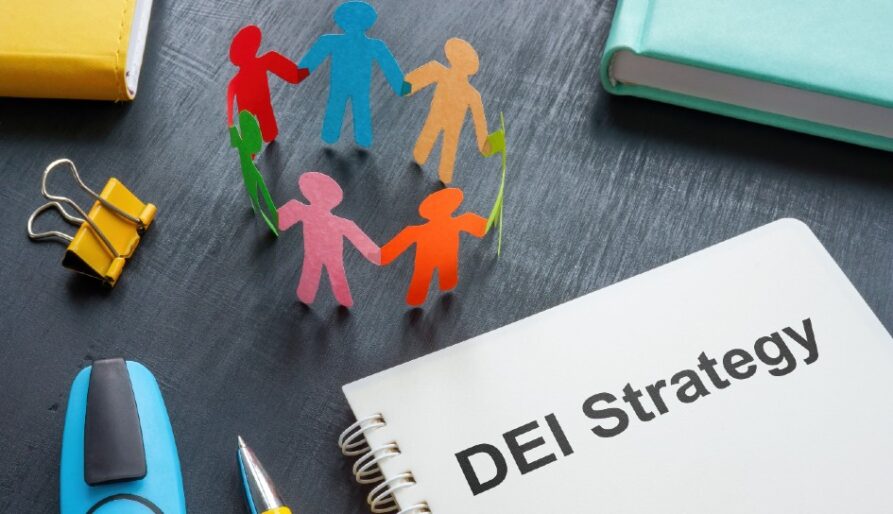Facility management departments need to be nimble and responsive to the rising emphasis on diversity and inclusion. Since FMs work across multiple building types, overseeing service providers and supervising teams of staff, they hold the power to impact numerous employees according to the culture their organization values.
In today’s dynamic business environment, from healthcare and post-secondary to corporate office settings, chief diversity officers (CDOs) are increasingly at the forefront of this transformation, leading various strategies to engender a more inclusive work environment that bolsters innovation, enhances employee satisfaction, and strengthens staff retention.
True inclusion extends beyond diverse employee representation by constructing a work culture where all employees feel nurtured, respected, and empowered to contribute to the company’s achievements. A genuinely inclusive workspace is a hotbed for innovation, productivity, and employee loyalty.
The initial step is crafting a holistic diversity and inclusion strategy. This process involves examining the current corporate state, pinpointing deficiencies in existing policies, and setting quantifiable goals. With a well-defined plan, CDOs can then introduce policies and initiatives that foster an inclusive atmosphere.
Employee resource groups
A beneficial approach includes setting up employee resource groups (ERGs) to cater to different demographics within the company. ERGs provide a platform for employees to connect, exchange insights, and support each other, thereby enhancing a sense of belonging and encouraging collaboration among diverse teams.
Advocate for open communication and dialogue within the organization. By establishing feedback mechanisms and listening sessions, ensure employees feel valued and heard. Handling conflicts in a fair and transparent way further strengthens facility management’s commitment to diversity and inclusion.
To enhance open communication, organize town hall meetings, workshops, and focus groups, providing employees a forum to voice their ideas and suggest ways to improve the workspace. These platforms foster a sense of engagement and ownership among employees, leading to a more inclusive culture.
Refining recruitment and retention of diverse talent
Recruitment practices must be assessed and improved to ensure fairness and eliminate biases. Implementing blind recruitment techniques, partnering with organizations endorsing diversity, and diversifying the interview panel can aid in achieving this goal.
In addition, creating a supportive onboarding experience for new hires, offering mentorship and career growth opportunities for diverse employees, and implementing diversity-centric leadership development programs can assist in retaining top talent. These measures also equip employees for future leadership roles, thereby contributing to a more inclusive work environment.
Recognizing and addressing unconscious biases is pivotal for an inclusive workplace. Regular training and workshops for employees and management should be provided to raise awareness about these biases. Monitor the impact of such training on the work culture to identify areas needing improvement and promote continuous advancement.
Moreover, CDOs should collaborate with HR and management to incorporate diversity and inclusion into the organization’s performance management systems. This action encourages employees at all levels to contribute actively to building a more inclusive environment.
CDOs should also champion a culture of allyship and support. Providing resources to help employees improve their allyship skills and recognizing and celebrating the efforts of allies in the workspace can reinforce a supportive and inclusive culture.
Monitoring progress and ensuring continuous improvement is another integral aspect of diversity and inclusion promotion. Define key performance indicators (KPIs) to track progress and ensure initiatives remain relevant and effective. Sharing success stories and best practices within facility management can further encourage progress and promote a more inclusive workplace.
Establishing strategic partnerships
Establishing strategic partnerships with external organizations and experts in diversity and inclusion can provide valuable insights and support. By participating in industry forums and conferences, CDOs can stay updated on the latest trends and best practices in diversity and inclusion.
Employing diverse strategies, prioritizing inclusive recruitment practices, and offering diversity training can shape an inclusive workspace that benefits both employees and the company.
As the workforce evolves, CDOs must remain dedicated to advocating for diversity and inclusion, ensuring their workplaces stay ahead of this crucial shift. Ongoing improvements, open communication, and collaboration, can lead to significant impacts and workplaces where everyone feels valued and included.
Jennifer Morehead is the CEO of Flex HR as well as an entrepreneur, sales and marketing expert, and an independent board member. Morehead prides herself on building strong teams that exceed expectations for their clients. She is the co-author of Make Your Business Social and the author of CEO From Home.
Flex HR is a human resource outsourcing and consulting firm located in the Metro Atlanta area and specializes in providing high-level and strategic consulting, HR back-office administration, regulatory compliance, organizational development, benefit solutions, recruiting, training, payroll. employee websites, and more. For more information, visit flexhr.com and follow Flex HR on Facebook, LinkedIn, and Twitter.





